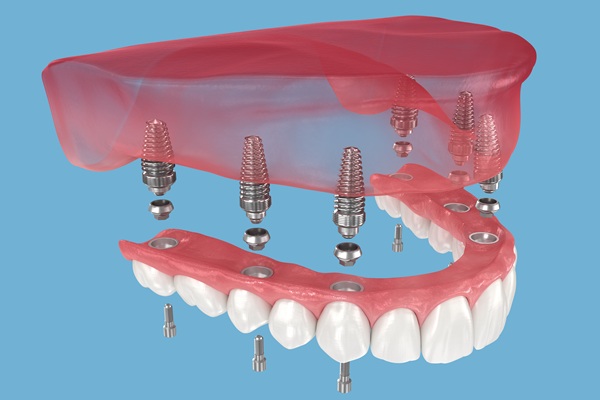How Does a Dental Filling Procedure Work?

A dental filling procedure is a common general dentistry treatment. Patients of all ages can benefit from this procedure as it is restorative, therapeutic, and very helpful when needing to address a tooth that is in bad shape. While it has been the standard for performing dental restorations, some people are unfamiliar with how the actual treatment works. Ready to find out more?
About dental filling procedures
Below is a quick overview of dental fillings, including what they are and how the treatment works. It can be helpful to review the following information when preparing for the procedure.
Understanding what dental fillings are
A dental filling is a restorative procedure done to repair a tooth that is decayed, chipped, cracked, or broken. However, most commonly, general dentists perform it for patients who have cavities. Dental fillings can be made of gold, ceramic, silver amalgam, or composite resin. However, the composite resin is used primarily for temporary dental fillings or baby teeth as the material does not last very long and is not the strongest.
The dental filling treatment process
A dental filling procedure consists of a few easy steps, which are outlined below:
- The patient is numbed and sometimes sedated using nitrous oxide, which is also known as laughing gas. Both of these practices are used to keep the patient comfortable during the placement of the dental filling. While there is not any severe pain, the removal of the infected parts of the tooth can be uncomfortable
- Once the patient is numbed and comfortable, the dentist begins the treatment by removing the infected parts of the tooth with a dental drill
- After all of the infected parts of the tooth have been removed, the dentist will clean the tooth cavity out carefully and efficiently. Cleaning is necessary in order to remove debris that may have been left behind from the dental drill. Cleaning is also done in order to disinfect the inner cavity
- To finish, the dentist will place the dental filling, which may be composed of gold, ceramic, silver amalgam, or composite bonding, if it is a temporary fix
After a dental filling procedure, the patient may experience sensitivity or soreness in, on, and around the tooth, which is completely normal. An over-the-counter pain reliever can be taken for a day or two to remedy any discomfort. General dentists recommend that the patient avoid hard or sticky foods for a couple of days to allow for proper healing. Oral hygiene should be maintained as normal, however, it is important to be gentle around the filled tooth.
Do you currently need a dental filling?
When needing a dental filling procedure, it is best to consult directly with a general dentist to get started. A quick evaluation can be done in order to determine the appropriate course of action. Additionally, the dentist can answer questions or address concerns that the patient may have. Contact us today to find out more about the dental filling process or to schedule an appointment.
Request an appointment here: http://lbfamilydental.com or call Leila Zamiri DDS at (562) 453-1214 for an appointment in our Long Beach office.
Check out what others are saying about our dental services on Yelp: Dental Fillings in Long Beach, CA.
Recent Posts
A new dental filling can help restore the function and integrity of a damaged tooth. However, it is important to be mindful of aftercare practices to ensure their longevity and prevent potential complications. Avoiding certain habits and foods immediately after a dentist places a filling can protect it and the tooth. Here is what you…
Preparing for a tooth filling? Tooth fillings, also known as dental fillings, are one of the most common restorations used in dentistry. They are used to literally fill a tooth once infected areas have been removed. Long ago, tooth fillings were only offered in a couple of select materials; however, modern-day technology has allowed for…
Tooth-colored dental fillings are the popular way to fill up cavities these days. Silver amalgam fillings have been the norm for the past 150 years, but a lot has changed since better alternatives emerged. Silver amalgam fillings contain mercury which is now known to be toxic to the body. It also has a grey color…
Curious about dental fillings? Read on to learn more about this common dental restoration. The mouth serves as a gateway to our overall health, and the condition of one's teeth can offer insights into various aspects of our well-being. One of the major ways to maintain good oral health is to promptly address dental decay…


